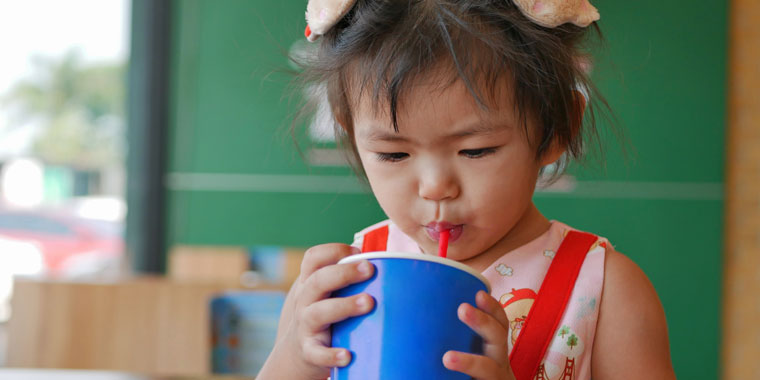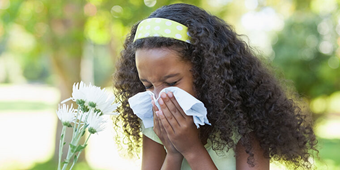An Unhealthy Blend: Kids And Caffeine

Answer a few questions and we'll provide you with a list of primary care providers that best fit your needs.
Kids and caffeine don’t mix, yet many children, even toddlers, regularly ingest the substance.
The trend is a concern for doctors and other health professionals. Caffeine is a stimulant that can lead to major health impacts — whether it’s in coffee, soda, or energy and sports drinks.
"Their little bodies cannot tolerate a lot of things as well as some adults," says Sara Wilson-Rector, a family nurse practitioner. "It takes less caffeine to affect a child's body than for adults."
Caffeine: An Addictive Stimulant
Too much caffeine can cause:
- Abnormal heart rhythm
- Acid reflux
- Anxiety
- Behavior issues
- Increased blood pressure
- Increased heart rate
- Sleep disturbances
As caffeine takes hold, the health effects spiral. Wilson-Rector says behavior and sleep problems are the most common conditions she sees in patients. She adds that poor sleep can lead to insulin insensitivity as well as behavioral issues. When children are tired and not feeling well, they may be unable to focus on school or other activities.
“Sleep plays a huge role in many aspects of children’s health,” Wilson-Rector says. “The best way to prevent these issues is to avoid caffeine.”
As a stimulant, caffeine is addictive. The body craves the boost caffeine provides. Young adults often fall into the practice of grabbing a caffeinated drink to help them stay energetic for an activity or to stay awake while studying. Eventually, this impacts sleep and leads to playing catch-up on rest, Wilson-Rector says.
When you stop taking caffeine, you or your children are likely to experience withdrawal symptoms, such as headaches and feeling sluggish and unwell.
Healthier beverage alternatives include milk, water, and limited amounts of juice, Wilson-Rector says.
How Much Caffeine Is Too Much?
The American Academy of Pediatrics recommends no caffeine intake for children age 12 and younger. Adolescents between the ages of age 13 and 18 should limit their intake to less than 100 milligrams per day – about the size of an old-fashioned cup of coffee.
Caffeine is pervasive in many beverages children and teens drink.
“Energy drinks have massive quantities of caffeine, sometimes as much as two or four coffees at a time,” Wilson-Rector says. “That amount of caffeine can cause a child or teen to have a lethal heart rhythm or their heart to stop.”
Here’s how much caffeine is in many popular beverages, according to the Harvard T. H. Chan School of Public Health:
- 8-ounces of brewed coffee: 95 milligrams
- 1.5 ounces of espresso: 65 milligrams
- 8 ounces of black tea: 47 milligrams
- 8 ounces of green tea: 28 milligrams
- 12 ounces of regular or diet dark cola: 40 milligrams
- 12 ounces of Mountain Dew: 55 milligrams
- 8 ounces of an energy drink: 85 milligrams (though a standard energy drink serving is 16 ounces)
- 2-ounce energy shot: 200 milligrams
- Caffeine supplements: 200 milligrams per tablet
Then there are dessert-like frappuccinos and specialty coffee drinks with lots of added cream, fat, and sugars. A 16-ounce Starbucks “grande” coffee can contain 310 to 360 milligrams of caffeine, depending on roast, according to Consumer Reports. And a 16-ounce mocha, 175 milligrams.
“They taste good and sweet and are not the best for us,” Wilson-Rector says. “They mask that we are drinking caffeine and coffee.”
The additional empty calories also raise concerns about nutrition and could contribute to excess weight gain and increased risk of diabetes.
When children show signs of anxiety or behavioral concerns, pediatricians often ask about what they eat and drink, Wilson-Rector says. Removing caffeine from the diet is an easy way to reduce symptoms and improve health.
Answer a few questions and we'll provide you with a list of primary care providers that best fit your needs.
Sources: Sara Wilson-Rector, FNP, Premier Health Family Care of Vandalia; CNN





